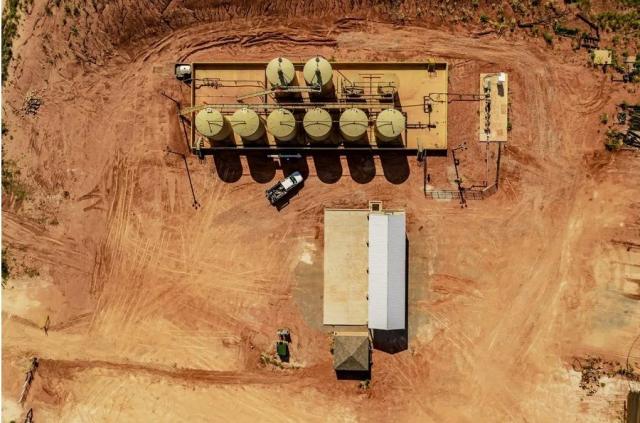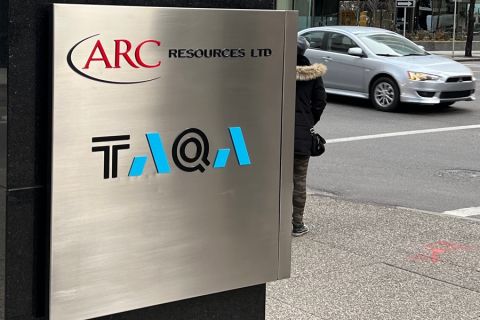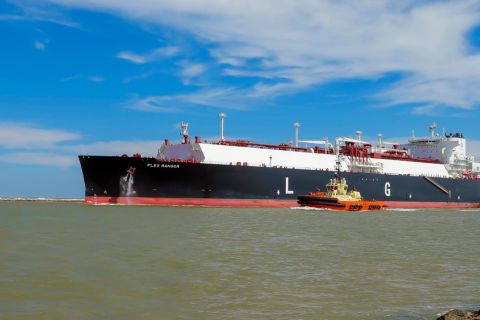
(Source: Lagoon Water Midstream)
Oklahoma’s Bison Water Midstream said Dec. 5 it acquired all of the Oklahoma assets owned by Lagoon Water Midstream, as well as the water infrastructure owned by Overflow Energy LCC in the STACK.
The Oklahoma City company, which bills itself as the state’s largest water infrastructure and logistics provider, did not provide financial details for its transactions.
“These transformational acquisitions…roughly double the size of Bison's existing footprint across the region,” North Whipple, CEO of Bison, said in a news release.
Lagoon’s website says it is in the heart of the STACK play with a core facility capable of treating 40,000 bbl/d of water. Its assets also include 1.2 MMbbl of storage capacity in addition to 21 owned and operated saltwater disposal sites, strategically located in Oklahoma.
Overflow Energy, founded in 2007, said it is become a leader in the oil and gas industry in the Texas Panhandle and Northwestern Oklahoma. The company owns and operates more than 50 saltwater facilities. The company recently expanded in the Permian Basin along with facilities in the SCOOP/ STACK.
The Lagoon transaction is effective Nov. 1, 2022, and the Overflow deal on Dec. 1, 2022. Following these acquisitions, Bison is the only remaining large-scale commercial water infrastructure provider serving the SCOOP, STACK and MERGE plays within Oklahoma's Anadarko Basin.
Bison's integrated water infrastructure platform now comprises:
• 750-mile water gathering system;
• 60 disposal facilities with permitted capacity of 1.2 MMbbl/d of water;
• 5.7 MMbbl of storage capacity; and
• 100,000 bbl/d of recycling/reuse capacity.
Bison holds more than more than 20 long-term contracts covering an area of mutual interest across the 17 million dedicated acres within the Anadarko.
During the past four years, Oklahoma's water midstream industry has experienced the full cycle of emergence, expansion, maturation and now consolidation, Whipple said.
“Together, our companies have demonstrated the overwhelmingly positive benefits of delivering safe, low-cost, reliable and emissions-reducing water solutions at scale,” he said. “In Oklahoma alone, we have collectively prevented over 200 MMbbl of water from being trucked, preserved 30 MMbbl of freshwater from industrial use and reduced the carbon footprint of the supply chain by more than 50,000 metric tons of carbon – all while reducing our customers' water costs by 30-50% on average.”
Bison said it will continue to work with new and existing customers to increase adoption of sustainable and environmentally responsible water management practices. That includes recycling more produced water, exploring beneficial reuse opportunities, leveraging shared water infrastructure and embracing new water technologies as they emerge.
“These solutions will help operators reduce their carbon footprint, save local freshwater, improve road safety, advance a multitude of ESG initiatives and increase the overall positive impact our industry can have on people and communities across Oklahoma,” Whipple said.
Recommended Reading
Enterprise Increasing Permian NatGas Production
2024-04-03 - Enterprise Products Partners began service on two natural gas plants: the Leonidas in the Midland Basin and the Mentone 3 in the Delaware Basin, each with a capacity to process 300 MMcf/d of natural gas and 40,000 bbl/d of NGLs.
ARC Resources Adds Ex-Chevron Gas Chief to Board, Tallies Divestments
2024-02-11 - Montney Shale producer ARC Resources aims to sign up to 25% of its 1.38 Bcf/d of gas output to long-term LNG contracts for higher-priced sales overseas.
Texas LNG Export Terminal Completes Required Permitting for FID
2024-01-26 - Glenfarne expects the Texas LNG project’s commercialization to be completed in the first half of 2024.
Permian NatGas Hits 15-month Low as Negative Prices Linger
2024-04-16 - Prices at the Waha Hub in West Texas closed at negative $2.99/MMBtu on April 15, its lowest since December 2022.
Paisie: Dutch Vehicle Fleet Foreshadows Structural Shifts
2024-03-26 - The expanding role of battery electric vehicles will be supported by the development of associated supply chains, as indicated by Stratas Advisors' forecast of global EV battery production capacity.




